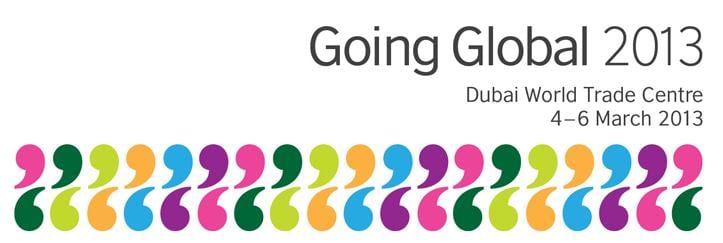 Going Global is a series of international educational conferences hosted by the British Council, offering an open forum for policy makers and practitioners from around the world to discuss issues facing the international education community. Each year it attracts over 1,000 registered delegates from across the further and higher education sectors and a variety of other industries with perspectives on international education.
Going Global is a series of international educational conferences hosted by the British Council, offering an open forum for policy makers and practitioners from around the world to discuss issues facing the international education community. Each year it attracts over 1,000 registered delegates from across the further and higher education sectors and a variety of other industries with perspectives on international education.
Global education: knowledge-based economies for 21st century nations
In the twenty first century, knowledge based economies will create the wealth, prosperity and well-being of nations. Research and tertiary education systems are primary drivers of these, playing three key roles. They produce cutting edge knowledge; they transfer, exchange and apply that to drive innovation; and they educate and skill knowledge workers. For these three roles to build knowledge and innovation in a globalised world, they must themselves be globally connected. Cutting edge research requires world-class research partners from across the globe; major innovation requires not only researchers but also businesses and investors to collaborate across national boundaries; knowledge workers need to develop international competences and skills to be effective in the future world.
Going Global 2013 will examine the extent to which these roles and systems are internationalised and what impact they have on the wealth, prosperity and well-being of nations, communities and cultures. The conference reviews and debates current practices, systems and delivery mechanisms. We identify future trends, and explore the challenges and opportunities these present for research and tertiary systems in creating knowledge-based economies for 21st century nations .
We welcome papers, presentations and case studies addressing the following areas and questions:
1. Research and innovation: the role of international collaboration:
- Research and innovation: what are the challenging questions (intellectual property, national funding systems etc) and what are the innovative answers?
- The value and impact of multilateral research: are the challenges of conducting multilateral research worth the outcomes?
- How are research hubs being established; how are they working and what do they contribute to nations, communities and cultures?
- Investing in research networks for the future – what should we invest in and what should we expect as the return on investment?
2. Developing skilled knowledge workers: the role of international collaboration:
- What does ‘employability’ mean in the context of a wealth of nations; how are these skills being developed?
- How are governments, employers, universities and colleges responding to the challenges of creating workforce skills for economic diversification?
- What systems underpin the development of global skills and competences; how internationalised are those systems?
3. Internationalising tertiary education structures and systems:
- Education cities and hubs – what is their contribution to global, national and local community agendas?
- How does transnational education impact on local and national culture, identity and gender issues – and are there inherent tensions between the provider and the local cultural setting?
- How is transnational education contributing to the economy, prosperity and well-being of host and source nations?
- What structures and systems ensure high quality education provision together with high quality of student experience?
For more information visit the going global website.
